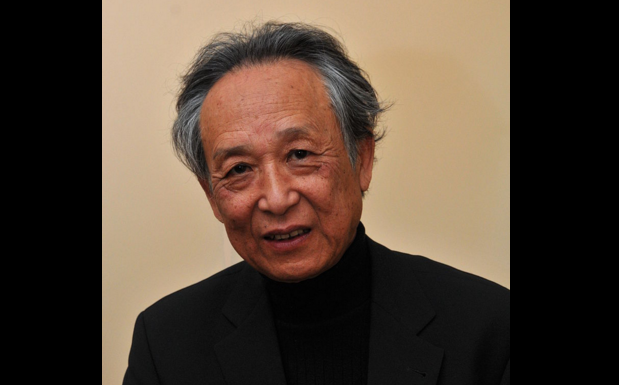
Chinese writer and Nobel Prize winner Gao Xingjian. Image via Wikimedia Commons.
For a writer in exile, the past informs a present role that is essential to preserving history.
Memory matters, especially when the perpetrator wants to delete the memory of his victim. Post-war Western literature almost always touches on the topic of Nazi terror. So is the situation in current Chinese literature. Without the tragic past as its background, contemporary Chinese literature would be shallow and hollow. Even authors who now live abroad and have been well accepted in Western world continue to dwell in the past. Famous overseas writers like Ha Jin, Zhang Rong, Liao Yiwu and Ma Jian keep on their writing with full Chinese memory, because the bitter experience of the political indoctrination, and events like the catastrophic Anti-Rightist-movement, the Cultural Revolution, and the Tiananmen massacre, provide them with inexhaustible materials and inspirations.
The first 30 years of the People’s Republic of China was an unprecedented political experiment with human beings as stalking horses. Liao Yiwu, who fled from China five years ago and is now living in Berlin, said he is still haunted by a particular nightmare. In it, he is chased by the security police and wakes up, bathed in sweat in the night. His screams and cries of mourning shock his sleeping wife.
“Writing is a therapy,” as Thomas Mann said. It is indeed a way to heal a wound, however everyone has his or her own way to apply this medicine. Gao Xingjian, a novelist and playwright based in France, takes his writing in a quite different direction. Gao left China in 1987, and has not returned to the country for the past three decades, cutting off his connection to China in both the spiritual and practical sense. He describes himself as a “global citizen” and has devoted himself to European culture. He has said openly that he does not want to touch Chinese topics, such as Cultural Revolution anymore, even though his novels One Man’s Bible and Soul Mountain deal with this topic and brought him the highest honor of the Nobel Prize for literature in 2000.
Since 1975, the Czech-born exiled writer Milan Kundera has also lived in France. Kundera sees himself as French and has composed his work in French since 1993. Gao seems to take Kundera as his model. He tried hard to jump away from the shadow of his Chinese background, and his creative writing and drama now deal with European themes and are in French. Unfortunately, Gao’s French works are constrained and unnatural. For example, his play Ballade Nocturne, a poem-play with dance, presents the ego of a Western female. How could an aged Asian male really enter the subtle psyche and emotional world of a young European female? This experiment is quite embarrassing. Gao failed in his goal. The play was only a dancing performance, something for the eyes, but did not touch the heart or soul of the audience.
After the Velvet Revolution, Kundera was embraced by his home country; he received awards and his works were published in Czech. But Gao is still treated like an unwelcome stepchild in his motherland of China. His works could not be published officially, but pirated copies exist on the free market. Most of his Chinese works were published in Taiwan and Hong Kong long before he received the Nobel Prize. Although they did not sell well before, his reception of the prize has promoted the distribution enormously.
While Gao Xingjian has been celebrated as a hero and master outside China, he never goes back to China. This is either because he is still a persona non grata or because he does not want to bow to a regime that has suppressed him and wouldn’t provide him any space for his free writing and thinking. His early book Basic Study of the Technique of Modern Fiction (xiandai xiaoshuo jiqiao chutan), was criticized immediately after its publication in 1981. The book, which introduces the “stream of consciousness,” could be labeled as a counterrevolutionary “poisonous weed.” The absurdity of real life has inspired Gao’s creation of absurdity drama. His early plays like Signal Alarm (1982) and Bus Stop reflected exactly the reality at that time. When he left China in 1987, Gao was a dissident.
Although “global citizen” Gao tried hard to merge into the European society, to transform himself as an European intellectual and turn his back to China, he still encourages others to write more about the Cultural Revolution. “To the Terror of that time, people have not written enough about it. We must let the generations to come know the historical experience, and prevent such things happen again.”
Gao, now 76, is a living witness of the terror, who is more qualified than he to write down the history? He must know that the role of “dissident writer” fits him much better than that of a “global citizen.”
